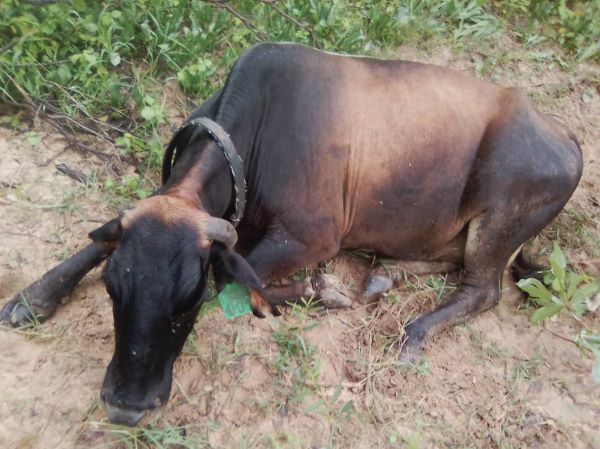
The general public has been alerted by the Federal Ministry of Agriculture and Rural Development regarding the outbreak of anthrax in neighbouring countries within the West African sub-region.
Specifically, there have been cases in Northern Ghana, bordering Burkina Faso and Togo.
This bacterial disease affects both animals and humans, making it a zoonotic disease. Anthrax spores are naturally present in the soil and commonly affect domestic and wild animals.
Transmission to humans occurs through contact with infected animals or contaminated animal products. It is important to note that anthrax is not a contagious disease, meaning it cannot be transmitted from person to person through close contact.
Signs of anthrax include flu-like symptoms such as cough, fever and muscle aches. If left undiagnosed and untreated, it can lead to pneumonia, severe lung problems, difficulty breathing, shock and even death.
Fortunately, Anthrax can be treated with antibiotics and supportive therapy as it is a bacterial disease.
While primarily a disease of animals, humans can easily contract Anthrax from non-vaccinated animals through inhalation of spores or consumption of contaminated animal products such as hides and skins, meat, or milk.
Annual vaccinations with anthrax spore vaccines are available at the National Veterinary Research Institute in Vom, Plateau State. This is the most cost-effective and convenient method for preventing and controlling the disease in animals.
Although infected animals cannot be vaccinated, animals at risk can receive the vaccine. Therefore, it is crucial to intensify animal vaccinations in border states such as Sokoto, Kebbi, Niger, Kwara, Oyo, Ogun and Lagos due to their proximity to Burkina Faso, Togo and Ghana. Other states in Nigeria are also advised to participate in the vaccination programme.
Infected dead animals should be buried deep in the soil, along with the equipment used for burial, after applying chemicals that can kill the anthrax spores.
The ministry’s permanent secretary, Dr. Ernest Umakhihe, emphasised the need for the public to refrain from consuming hides (ponmo), smoked meat and bush meat as they pose serious health risks until the situation is under control.
Furthermore, the Federal Government has re-established a standing committee on the control of anthrax in the Ministry of Agriculture and Rural Development to address the outbreak. Relevant institutions and collaborators have been contacted to aid in the control efforts. State directors of veterinary services nationwide have also been sensitised to the situation.


